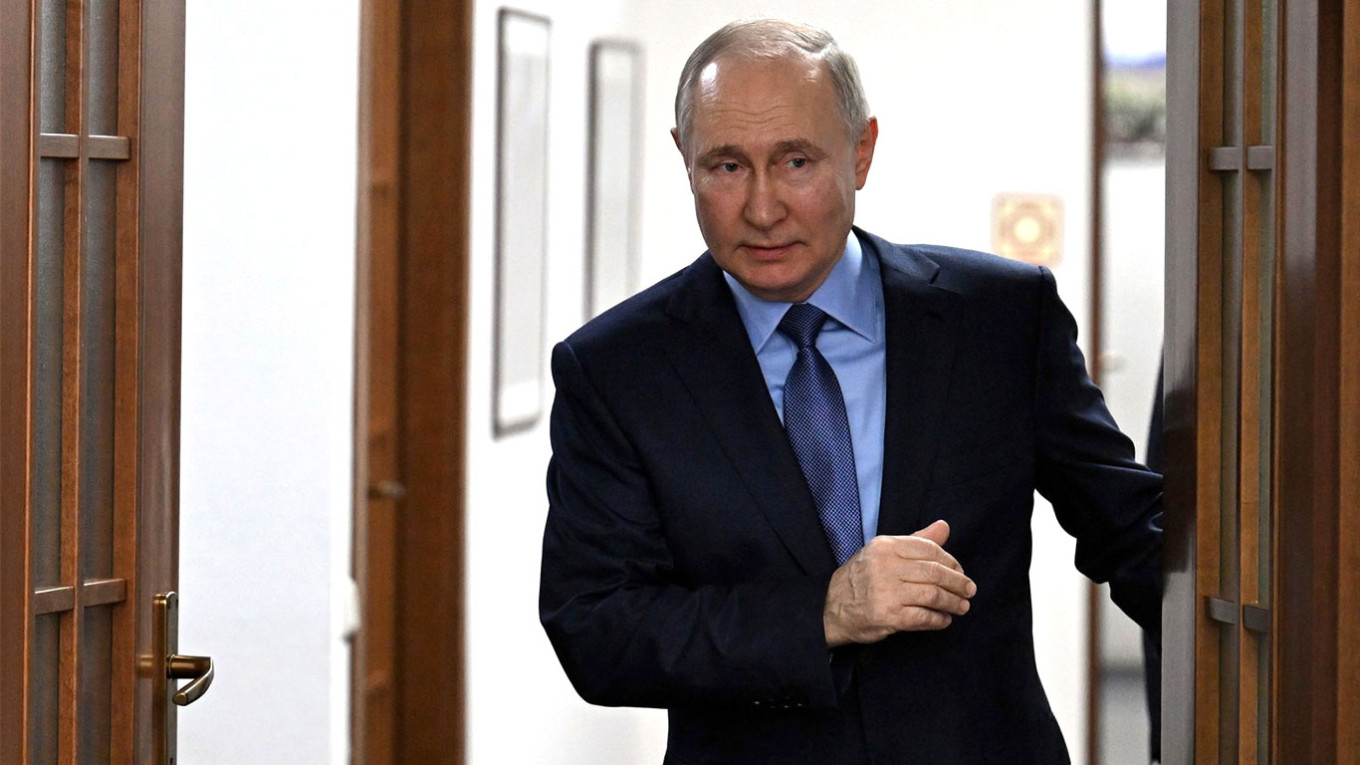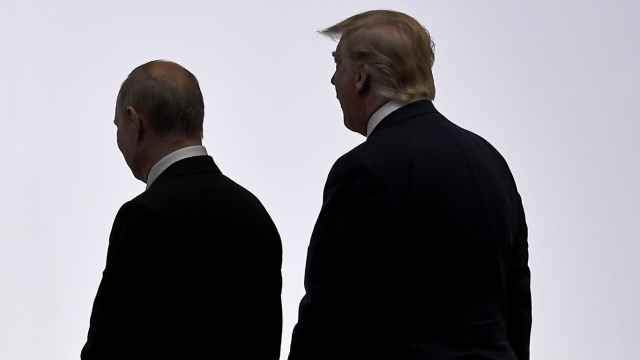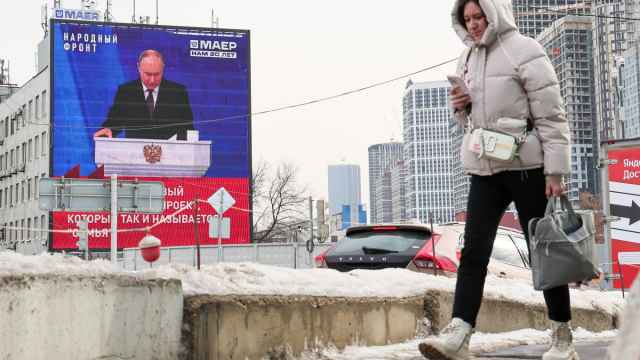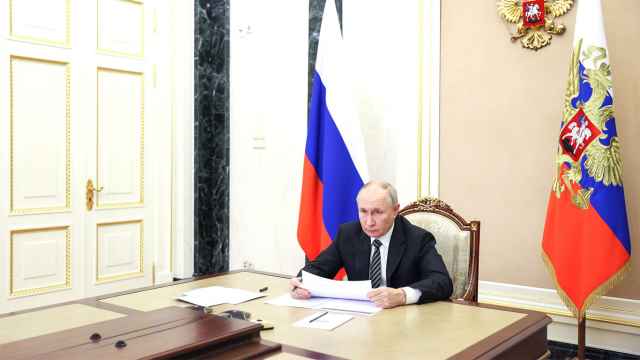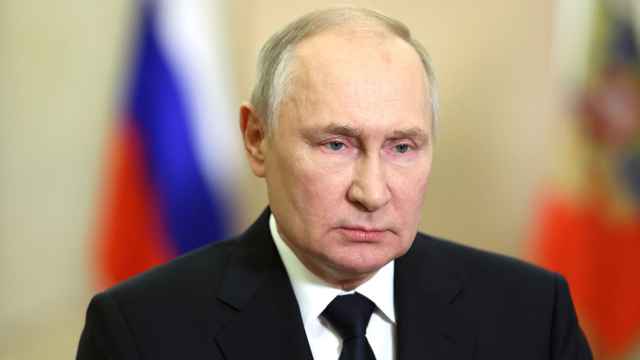President Vladimir Putin is defying Russian election laws by unofficially campaigning during his work trips and meetings while enjoying preferential coverage on state television.
In the five weeks since Putin announced that he will run for a fifth term in the upcoming presidential election, independent observers have noted violations in both his self-nomination as a candidate and the collection of signatures needed for him to appear on the ballot.
At the same time, Moscow's wholesale repression of the opposition and independent media makes public mentions of violations virtually impossible.
“On the instructions of our senior comrades [in the presidential administration], the Duma has deliberately made independent observation of voting more difficult, introducing electronic voting and other measures,” a State Duma lawmaker who attends regular meetings with the Kremlin told The Moscow Times.
The lawmaker spoke on condition of anonymity because he is not authorized to make statements to the media.
Under the Russian Constitution, Putin, 71, was supposed to leave the presidency in 2024.
But following 2020 constitutional amendments — whose adoption was described as illegitimate by independent lawyers — he was given the right to be elected for two more six-year terms.
If he exercises this right, he will remain in power until 2036, having spent a total of 32 years in the Kremlin.
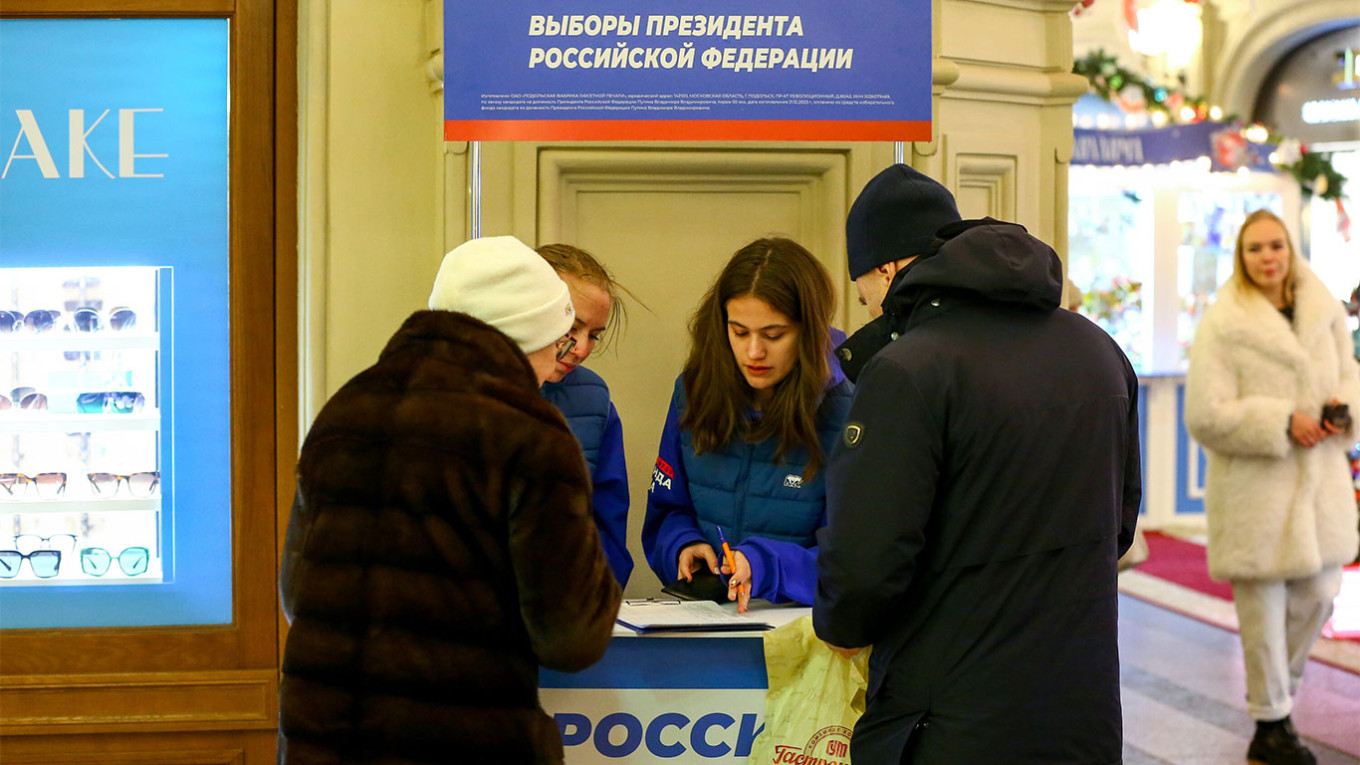
Putin always waits until the last minute to declare whether he will run for re-election. He has justified this approach in past election years by saying that many officials “immediately stop working because they are waiting for some changes” as soon as he announces his campaign.
But this time, Russian officials started quietly discussing his likely re-election bid in the upcoming election long before Putin made the announcement.
In July, the independent Meduza news website reported that the Kremlin is planning for Putin to win a landslide victory with more than 80% of the vote.
And in October, Kremlin spokesman Dmitry Peskov expressed his “personal opinion” that Putin “does not and cannot have any political competitors” in the country.
Putin announced he will run as a self-nominated candidate, a move that means he must collect 300,000 signatures across Russia in support of his nomination.
Shortly after, regional and municipal leaders, including Moscow Mayor Sergei Sobyanin, spoke out one by one in support of gathering signatures for the Russian leader.
In some regions, such as St. Petersburg, the heads of local election commissions have been seen collecting signatures for Putin in public places, even though election laws forbid this.
So far, the Central Election Commission (CEC) has officially registered four candidates. Seven others, including Putin, are waiting to be registered after collecting signatures.
However, Putin dominates Russian television news, with mentions of him far outnumbering those of his opponents, according to a report by the independent election monitor Golos.
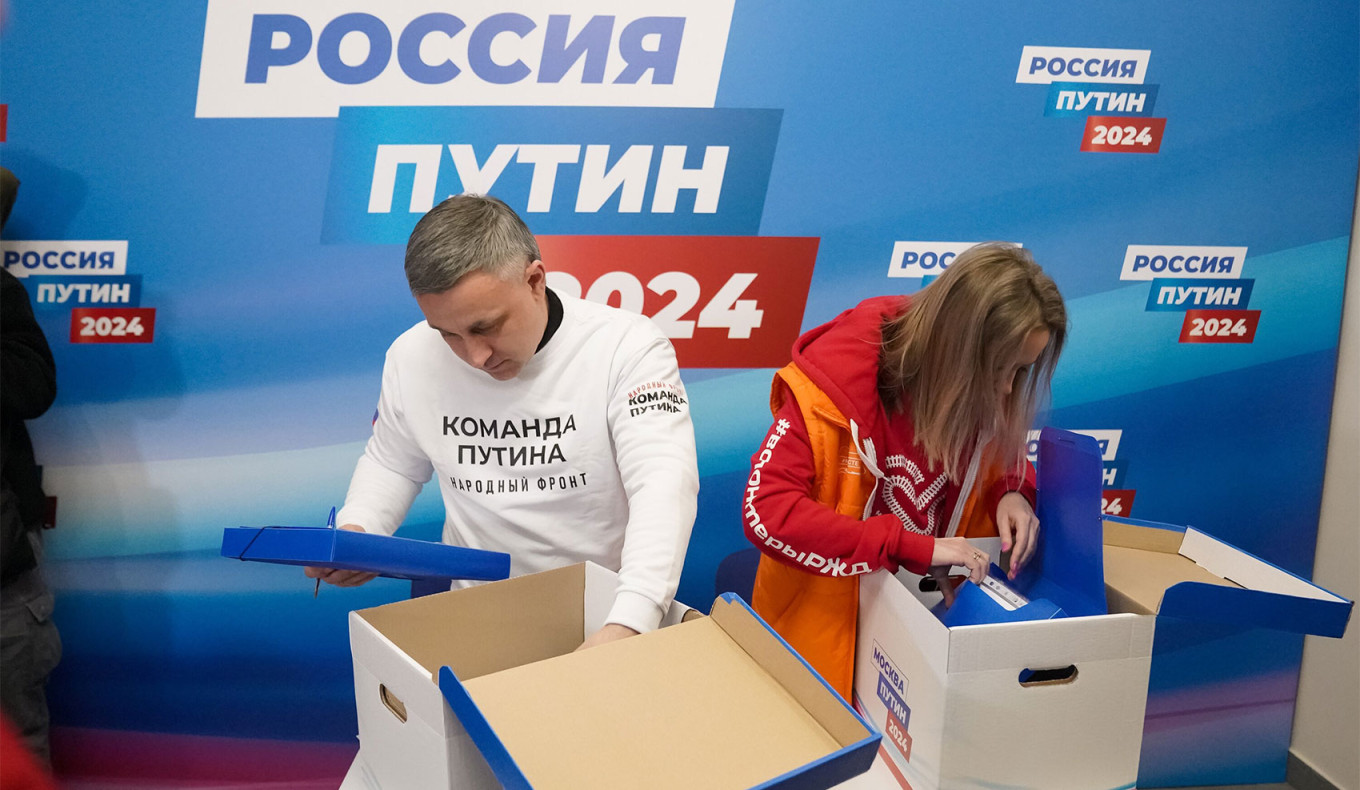
“The imbalance in the coverage [on state television] given to each of the candidates remains critical for the equality of candidate rights. The number of mentions of Putin as president and as a candidate in total is 40 times higher than that of the Liberal Democratic Party and New People candidates,” the report said, referring to two systemic opposition parties.
Furthermore, Putin is referred to on state television with either positive or neutral language, but never negative.
Instead of informing citizens about all election candidates, state television devotes most of its airtime to reporting on events involving Putin, according to Golos’s report.
“The boss [Putin] pretends that he has no time to deal with elections yet because he is solving the problems of Russians,” a source close to the Kremlin told The Moscow Times on condition of anonymity because he is not authorized to talk to the press.
“But in reality, he is never taken off television screens. State channels report on his phenomenal work every day.”
So far this month, Putin has visited the remote Chukotka autonomous region, where he visited an agricultural greenhouse, as well as the Khabarovsk region, which was the site of mass protests in 2020 in support of arrested Governor Sergei Furgal.
Putin was also shown in televised segments honoring the military and celebrating Orthodox Christmas with widows and children at his official residence outside Moscow.
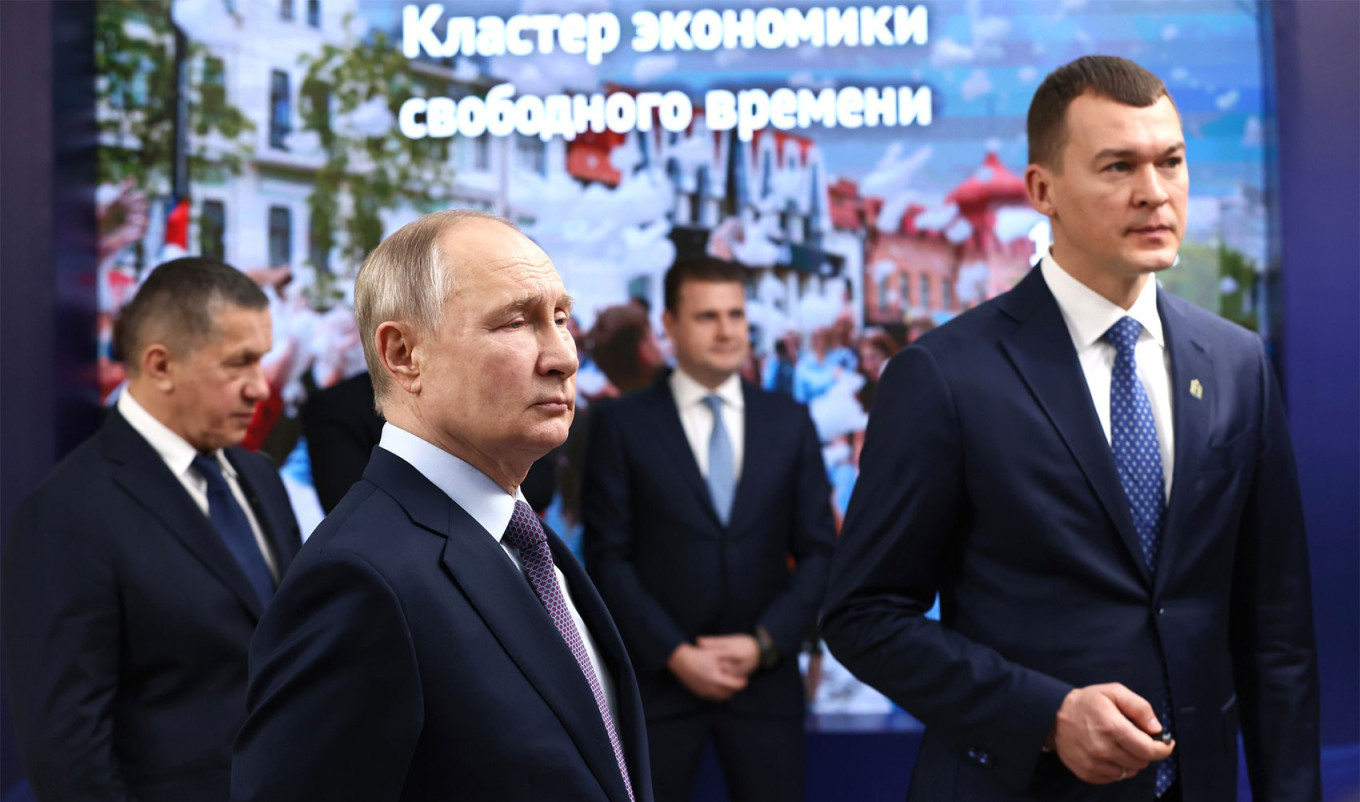
State television has not given positive coverage to any other presidential candidate so far, Golos said in its report.
However, this week the Rossia 24 broadcaster covered the campaigns of LDPR's Leonid Slutsky and New People's Vladislav Davankov.
Since the Kremlin relies on a strategy of “campaigning by work,” whereby Putin seeks to show he is a man on the job and in action, solving an array of issues across the country, the Russian leader has yet to hold any official campaign events.
Under Russia's presidential election laws, Putin is not required to take leave during the election.
But he is not allowed to use his position as head of state to campaign, while campaign-related events and all media appearances must be financed through an election fund.
“As a rule, if the incumbent president does not say the words ‘elections,’ ‘voting,’ ‘ candidate,’ or mention other candidates in his speeches, then these speeches are considered part of his job and are not considered campaigning,” Russian election lawyer Oleg Molchanov told The Moscow Times.
Election commissions and courts determine whether to qualify certain actions as campaigning, independent election expert and Golos co-chair Andrei Buzin said.
“But in Russia, all state and even semi-state bodies under Putin are built into the power vertical. That is, they are part of the power at the top of which Putin stands,” Buzin said.
“Therefore, these bodies will not see Putin's violations. No matter how serious and massive these violations may be.”
A Message from The Moscow Times:
Dear readers,
We are facing unprecedented challenges. Russia's Prosecutor General's Office has designated The Moscow Times as an "undesirable" organization, criminalizing our work and putting our staff at risk of prosecution. This follows our earlier unjust labeling as a "foreign agent."
These actions are direct attempts to silence independent journalism in Russia. The authorities claim our work "discredits the decisions of the Russian leadership." We see things differently: we strive to provide accurate, unbiased reporting on Russia.
We, the journalists of The Moscow Times, refuse to be silenced. But to continue our work, we need your help.
Your support, no matter how small, makes a world of difference. If you can, please support us monthly starting from just $2. It's quick to set up, and every contribution makes a significant impact.
By supporting The Moscow Times, you're defending open, independent journalism in the face of repression. Thank you for standing with us.
Remind me later.



